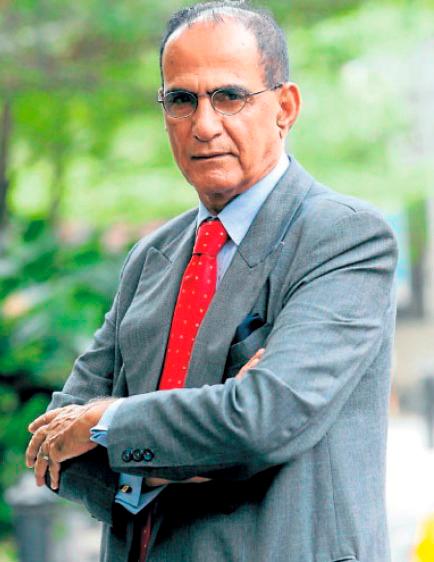WHEN Arab-Malaysian Development Bank (AmBank) founder Hussain Ahmad Najadi offered to assist his Malaysian wife oversee a land deal, never would he have guessed that it would cost him his life.
Najadi (pix) had closed dozens of multi-million dollar deals throughout his illustrious career as a prominent banker.
In the evening of July 29, 2013, the 75-year-old Iranian, who possessed Malaysian permanent residence status, had accompanied his wife Cheong Mei Kuen, then aged 49, to meet a businessman, who was a Datuk.
They were to discuss a deal involving a multi-million ringgit plot of land owned by a Chinese temple on Lorong Ceylon, near Jalan Bukit Bintang, Kuala Lumpur.
After the brief meeting, which was held at the temple premises, Najadi and Cheong stepped out and headed for a car park when a gunman, who was earlier spotted loitering around the area by witnesses, emerged.
The killer opened fire at Cheong before turning to Najadi and firing several more gunshots at close range.
As both victims collapsed at the car park, the gunman rushed into a waiting taxi and fled the scene.
Najadi, who took three gunshots to his chest, died at the scene. Cheong who suffered gunshot wounds on her leg and hand survived the attack.
Several people were rounded up for questioning and as police investigations intensified, the suspect list was narrowed down to three people – the hitman, Koong Swee Kwan, then aged 44, Chew Siang Chee, the 42-year-old taxi driver who ferried him, and the alleged mastermind behind the killing, Lim Yuen Soo, then aged 52.
While Chew surrendered days after the incident and was charged with firearm possession weeks after his arrest, the hunt for Koong only came to an end about two months later when he was arrested by police in Taiping, Perak.
Koong, a tow truck driver and car repossessor who went by the nickname Sei Ngan Chai (bespectacled boy), was charged with Najadi’s murder and the attempted murder of Cheong. He was sentenced to death for the killing in 2014.
The KL High Court also sentenced him to 18 years jail for attempting to kill Cheong.
During the trial, it was heard that Koong was paid RM20,000 to pull off the hit on Najadi and Cheong.
The sentence meted out on Koong was upheld by the Court of Appeal last year.
Chew was found guilty of his crime and was sentenced to 14 years imprisonment and six strokes of the rotan in 2014.
Two years later, he was freed by the Court of Appeal following an appeal against the sentence.
Lim, who was on the run after the case and fled to China and later to Australia, was eventually arrested in 2015.
After eight days in police custody, he was unconditionally released due to insufficient evidence of his role in the killing.
Although the case came to a close after his release, Najadi’s family had stepped forward alleging there were other ulterior motives in the banker’s murder which were linked to high-level corrupt practices involving billions of ringgit.
Najadi’s son, Pascal, alleged his father was murdered to silence him from exposing the wrongdoings of certain top officials. However, police have rubbished his claims.









